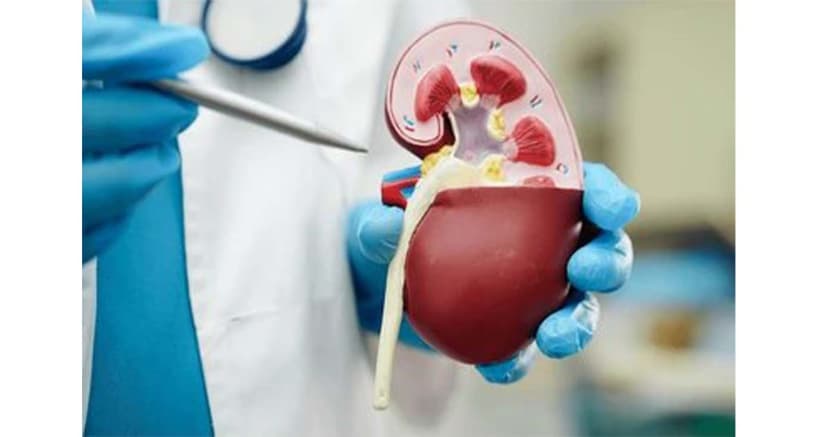Understanding Sinusitis: Causes, Symptoms, and Effective Treatment Options
By:

Apex Hospitals
22-07-2023 5 Min Read

Sinusitis is a common condition that affects millions of people worldwide. It is a condition that causes inflammation of the sinuses, which are the air-filled cavities located in the forehead, cheeks, and nasal bones. Sinusitis can be acute or chronic and can cause various symptoms, including congestion, facial pain, and headaches.
Introduction to Sinusitis
Sinusitis is a condition that occurs when the sinuses become inflamed and swollen. The sinuses are air-filled cavities in the bones of the face and skull. They are lined with a thin layer of mucus, which helps to keep the sinuses moist and clean. When the sinuses become inflamed, the mucus can't drain properly, leading to bacteria and other germs buildup. This can cause an infection, which can result in the symptoms of sinusitis.
What are Sinuses, and How Do They Work?
The sinuses are air-filled cavities in the bones of the face and skull. They are connected to the nasal passages by small openings or channels. The sinuses are lined with a thin layer of mucus, which helps to keep them moist and clean. The sinuses also help regulate the temperature and humidity of our air.
What Causes Sinusitis?
Various factors, including viral infections, bacterial infections, allergies, and environmental irritants, can cause sinusitis. Viral infections are the most common acute sinusitis causes, while allergies and environmental irritants are more likely to cause chronic sinusitis. Bacterial infections can also cause sinusitis, especially in people with weakened immune systems.
Sinusitis Risk Factors
Several risk factors can increase your risk of developing sinusitis. These include:
- allergies
- asthma
- nasal polyps
- a deviated septum
- a weakened immune system.
- Smoking
- exposure to environmental irritants, such as pollution and chemicals
Common Sinusitis Symptoms
The sinusitis symptoms can vary depending on the severity of the condition. The most common symptoms of sinusitis include:
- congestion
- facial pain
- headache
- pressure in the sinuses
- cough
- sore throat
- fever
- In some cases, sinusitis can cause a sense of smell or taste loss.
How is Sinusitis Diagnosed?
Effective Treatment Options for Sinusitis
The sinusitis treatment depends on the underlying cause of the condition. Acute sinusitis is usually treated with over-the-counter medications, such as decongestants and pain relievers. Antibiotics may sometimes be prescribed if a bacterial infection causes sinusitis. Chronic sinusitis may require more aggressive treatment, such as nasal corticosteroids or surgery.
Home Remedies for Sinusitis Relief
Several home remedies can be used to relieve the symptoms of sinusitis. These include:
- using a humidifier
- taking hot showers
- drinking plenty of fluids
- using saline nasal sprays
- Over-the-counter medications, such as decongestants and pain relievers, can also effectively relieve sinusitis symptoms
When to See a Doctor for Sinusitis
Most cases of sinusitis can be treated at home with over-the-counter medications and home remedies. However, you should see a doctor if your symptoms persist for over a week or are severe. You should also see a doctor if you develop a fever, have a severe headache, or experience vision changes.
Chronic Sinusitis and Its Treatment
Chronic sinusitis is a condition that lasts for more than 12 weeks and is often caused by allergies or environmental irritants. The treatment for chronic sinusitis may involve a combination of medications, such as nasal corticosteroids, antibiotics, and immunotherapy. Surgery may sometimes be necessary to remove polyps or repair a deviated septum.
Preventing Sinusitis
There are several steps that you can take to prevent sinusitis. These include avoiding environmental irritants, such as pollution and chemicals, quitting smoking, and using a humidifier to keep the air moist. You should also practice good hygiene, such as washing your hands frequently and avoiding close contact with people who are sick.
Sinusitis is a common condition that can cause various symptoms, including congestion, facial pain, and headaches. Various factors, including viral infections, bacterial infections, allergies, and environmental irritants, cause it. Treatment for sinusitis depends on the underlying cause of the condition and may involve over-the-counter medications, prescription medications, or surgery. By preventing sinusitis, you can reduce your risk of developing this condition and improve your overall health.
Related Articles
Connect With Us
Health In A Snap, Just One App.
KNOW MORE






























































































































































